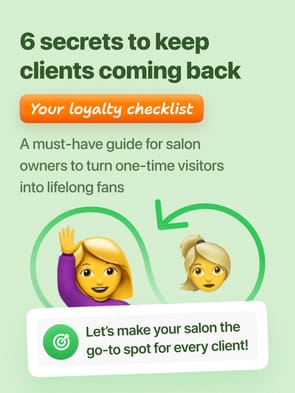How to become a piercer in 2025: requirements & key skills
Loading the Text to Speech Player...
Welcome to your go-to guide on how to become a piercer in 2025. I'll walk you through every step of the journey, from defining what a body piercer does to how long does it take to become a piercer and the types of apprenticeships available. Let's set your career in motion!
Who is a body piercer
Have you ever considered making a career out of body art? As a body piercer, you're the maestro of metal and skin. You're not merely someone pushing a needle through flesh. You're an artisan with a flair for aesthetics and a commitment to hygiene. Each piercing you create is like a personal signature, one that your client will carry with them. And your role doesn't end once the needle goes through. You're also the guide for aftercare, ensuring each work of art heals as beautifully as it was created.
What do they do:
A body piercer is a multifaceted professional with various roles, including:
- Artisan: they bring to life a client's vision for a unique and aesthetically pleasing piercing.
- Consultant: clients look to them for advice on types of piercings and jewelry that will suit their personal style and lifestyle.
- Hygienist: keeping a sterile environment and ensuring all equipment is properly sanitized is a non-negotiable part of the job.
- Educator: they provide clients with detailed aftercare instructions to help ensure successful healing and maintenance of their new piercing.
- Customer service: establishing rapport, comforting anxious clients, and providing an overall pleasant experience are all part of their role.
- Trendsetter: being up-to-date with the latest trends in piercing is crucial.
- Administrator: organizing appointments, keeping stock, and maintaining records also fall under their responsibilities.
Who is suitable for this job?
If the thought of a nine-to-five desk job gives you the jitters, body piercing could be your escape route. A steady hand and an eye for detail are prerequisites, but there's more. Your interpersonal skills are just as crucial. You're not just piercing skin; you're navigating emotions and expectations. The ability to ease nerves and provide assurance can set you apart in this field. And if you're a perennial learner, you're already ahead. The world of body piercing is dynamic, ever-changing with new techniques and trends.
If you can blend artistry with empathy and a willingness to evolve, this might just be the career for you.
Build your salon empire today!
Want to dominate the beauty industry? Grab our beauty salon business plan to unlock a powerful strategy that transforms your dream salon into a thriving reality. Download now — take the first step!
Oh no! We couldn’t subscribe you ☹️
Done! We've sent a link to your Email 📨
How to become a body piercer
So, you like this job and ask yourself how to become a piercer? The road to becoming a body piercer is paved with both technical know-how and artistic flair. It's a captivating blend of precision, aesthetics, and client interaction. In this chapter, we delve into the nitty-gritty of what it takes to turn this fascinating occupation into your day job.
Familiarize yourself with the field
Before you take the plunge into learning how to become a professional piercer, it's important to immerse yourself in the world of piercing. Visit various studios to get a feel for different settings and approaches. Watch videos on different types of piercings and the techniques used. Keep an eye on industry blogs, forums, and social media platforms. This is not just about knowing where to put the hole; it's about understanding the culture, the trends, and the ever-evolving best practices.
Talk to professionals in the field; their insights can offer you a shortcut to valuable knowledge that would take years to accumulate otherwise.
Meet basic requirements
Though it's not a job that requires a conventional degree, there are some basic prerequisites. You must be at least 18 years old, have a high school diploma or GED, and some states may require a background check. Furthermore, excellent hand-eye coordination and good people skills are a must.
Find a school or teacher
While some piercers are self-taught, formal education can be incredibly beneficial. To complete a body piercing apprenticeship, which the Association of Professional Piercers (APP) recommends for all body piercers, you must first find a mentor who is willing to train you.
Also many vocational schools offer courses in body piercing, and these can provide a structured learning environment. Here, you'll cover everything from piercing techniques to the human anatomy, from jewelry materials to hygiene standards.
Pass health and safety training
The well-being of your clients hinges on your adherence to stringent hygiene and safety protocols as you learn how to be a piercer. You'll need to complete training programs on infection control, usually offered by health departments or industry organizations. It's not just a box to tick; these courses arm you with vital knowledge that you'll use every day. For example, do you know the difference between autoclaving and dry heat sterilization? You will after this training.
Complete an apprenticeship
An apprenticeship, often referred to as a body piercing apprenticeship, is the gold standard for hands-on training in this field. You'll work under the supervision of an experienced piercer, typically for 6 months to 2 years. This is where theory meets practice.
You'll start with observing, then move on to assisting, and eventually, you'll perform piercings yourself. It's not just a learning experience; it's a rite of passage that will prepare you for the challenges and rewards of the job. And remember, choosing the right mentor is crucial. More on that later.
Follow the content of other masters and influencers
Social media platforms like Instagram and YouTube are brimming with content from piercing veterans and rising stars alike. Not only can following these masters provide you with a continuous stream of inspiration, but it can also keep you updated on the latest trends and innovations. If Brian Skellie, a renowned body piercer, shares a new technique for seamless hoop installations, you'll want to know about it.
Get a license
Once you've completed your apprenticeship, the next step is thinking on how to get a piercing license. Piercing license requirements can vary by state, but generally, you'll need to provide proof of your apprenticeship and pass an exam. The exam will usually cover piercing techniques, safety protocols, and sometimes even business ethics. Once you clear it, you're officially a licensed body piercer!
Find a job
With your shiny new license in hand, it's time to hit the job market. You can choose to work in a piercing studio, a tattoo shop that also offers piercing services, or even consider setting up your own salon if you have the resources and business acumen. Networking is invaluable here. Remember those industry connections you made while familiarizing yourself with the field and during your apprenticeship? Time to put them to good use. Websites like Indeed, LinkedIn, and industry-specific job boards are also great resources.
In summary, I've outlined the essential steps on how to become a piercer. From familiarizing yourself with the field to completing a pivotal body piercing apprenticeship, each step prepares you for a rewarding career in this unique art form.
Stay tuned as we delve into all the exciting details related to how to get a piercing apprenticeship in upcoming sections of this comprehensive guide. Your journey into the world of professional piercing is just getting started!
How to choose a mentor for a piercing apprenticeship
So, you're ready to dive deep into the world of professional body piercing, and you've arrived at a crucial milestone: choosing the right mentor for your piercing apprenticeship. This decision is not to be taken lightly; it can make or break your entire journey. Here's how to make a choice that aligns with your ambitions and skill set:
Research and network
Start by creating a list of potential mentors. Browse through social media, engage in industry forums, and ask for recommendations from people in the field. Attend piercing events or conventions to meet professionals who might be open to taking you under their wing.
Example: If you admire a particular piercer's work on Instagram, don't hesitate to reach out and inquire about mentorship opportunities.
Evaluate skills and styles
Every piercer has their own style and specialization. Are you interested in traditional piercings, or are you eager to explore experimental techniques? Make sure your prospective mentor aligns with your interests.
Example: If you're passionate about intricate ear piercings, a mentor specializing in facial piercings may not be the best fit.
Visit their studio
A studio visit gives you an up-close look at a piercer's work environment. This visit will help you assess the hygiene standards, customer service, and overall vibe.
Example: During your visit, notice the cleanliness. Is the equipment properly sterilized? This can be a telling sign of the mentor's commitment to health and safety.
Ask about past apprentices
Inquire about previous apprentices and their experiences. A mentor who has successfully nurtured talent before will likely have a well-defined teaching approach.
Example: Ask to speak to past apprentices. Their insights can provide a fuller picture of what to expect.
Financial and time commitment
Different mentors have varying requirements. Some may ask for tuition fees, while others might expect you to work for them as part of the training. Make sure you're clear on the terms before committing.
Example: If a mentor offers a free apprenticeship in exchange for part-time work in their studio, weigh this against other options that might require payment.
By following these steps, you'll significantly improve your chances of finding a mentor who's not just skilled, but also a perfect match for your career aspirations. Remember, a piercing apprenticeship is a transformative experience, and the right mentor can set the stage for a successful journey into the world of professional body piercing.
Types of piercing apprenticeship programs
Embarking on a piercing apprenticeship is a monumental step towards turning your passion into a profession. But before you dive in, it's crucial to know that not all apprenticeship programs are created equal. They come in different flavors, each with its unique set of pros and cons. Below are the main types you'll encounter:
Apprenticeship with employment
This is the classic “earn while you learn” model. In this arrangement, you'll work part-time in the studio performing tasks like customer service, cleaning, or even some basic piercing procedures under supervision. The money isn't usually great to start with, but hey, you're gaining invaluable hands-on experience while also getting paid.
Non-compete apprenticeship
In a non-compete apprenticeship, you agree not to work for a competing studio or start your own business within a certain radius for a specified period after your training ends. These programs often provide highly specialized training, but the non-compete clause can limit your immediate employment options.
Offline / online training
The digital age has made its mark on piercing apprenticeships too. While nothing beats in-person, hands-on training, online courses can offer valuable theoretical knowledge. Offline training is, of course, the traditional route and arguably the best way to gain practical experience.
Understanding these program types can guide you in selecting the one that best fits your career goals and lifestyle. So weigh your options carefully, and set yourself on the path to a fulfilling career in body piercing.
Final thoughts
Navigating the path on how to become a professional piercer is an intricate journey that demands dedication, skill, and a willingness to learn continually. Stepping into the intricate realm of body piercing is more than just learning how to make precise perforations; it's about immersing oneself in a culture, an art form, and a profession that continually evolves. From understanding the essence of a body piercer to carefully selecting a mentor, and navigating through varied apprenticeship programs, every phase is essential in molding your craft.
The right apprenticeship program can serve as your gateway into this fascinating world, offering hands-on experience, mentorship, and exposure to diverse piercing techniques. Whether you opt for an apprenticeship with employment, navigate the intricacies of a non-compete agreement, or blend offline and online training, the key is to choose a pathway that aligns with your long-term career goals.
It's not just about how much does a salon owner make; it's about crafting a life around an art form that you're passionate about. As you move forward, don't forget to constantly update your skills and keep an eye on emerging trends in the industry. The world of piercing is ever-evolving, and staying ahead means staying educated. Your journey may be challenging, but the rewards—both personal and professional—are worth every obstacle.
 The latest articles and industry insights delivered to your inbox
The latest articles and industry insights delivered to your inbox
Subscribe to receive a monthly digest of our most valuable resources like blog posts, whitepapers, and guides.
Oh no! We couldn’t subscribe you ☹️
Done! You've subscribed 💛
Unsubscribe anytime. Your data is stored for business-to-business communication purposes. See our Privacy policy.
Frequently asked questions
Who is a body piercer?
A body piercer is a trained professional who performs various types of body piercings, adhering to strict hygiene and safety standards. They may work in tattoo shops, piercing studios, or beauty salons.
How to become a piercing apprentice?
To become a piercing apprentice, start by doing thorough research and networking within the industry. Then, meet the basic educational and age requirements and find a mentor who aligns with your career goals.
How to choose a mentor for a piercing apprenticeship?
Choosing a mentor involves researching potential candidates, evaluating their skills and styles, and considering factors like studio hygiene, previous apprentices, and financial commitments. It's a vital step in your piercing career.
What skills do you need to be a professional piercer?
Being a professional piercer requires a blend of technical and soft skills, including precision in piercing, understanding of hygiene protocols, good communication skills, and a sense of aesthetics and design.
Last updated on Feb 28, 2025
“What Changed” in this article? Everything. It's packed with the latest findings, the ripest data, and a fresh analysis you won't find anywhere else.
A subject-matter expert wrote the content, and reliable, official sources support it. Recent research has been incorporated to maintain relevancy and accuracy.
Key sources and research references: APP
Please share this post
Table of Contents
Who is a body piercerHow to become a body piercerHow to choose a mentor for a piercing apprenticeshipTypes of piercing apprenticeship programsFinal thoughtsFrequently asked questionsUnlock FREE bonus material!
Get your hands on "Your loyalty checklist: 6 secrets to keep clients coming back". Subscribe to our newsletter and receive a link to download it straight to your inbox.
Oh no! We couldn’t subscribe you ☹️
Done! We've sent a link to your Email 📨
Trusted by the best in the beauty industry.
Transform your beauty business with Suplery!
Already enjoying our expert tips? Take the next step and join Suplery to revolutionize your business operations.
Huge range of professional products
One-click checkout after first order
Automated predictive orders
Seamless inventory management
From words to action
Start working with Suplery and explore all the tools and services you need to expand your business
Get started with Suplery24/7 Support
Secure payments
Designed by industry’s experts



